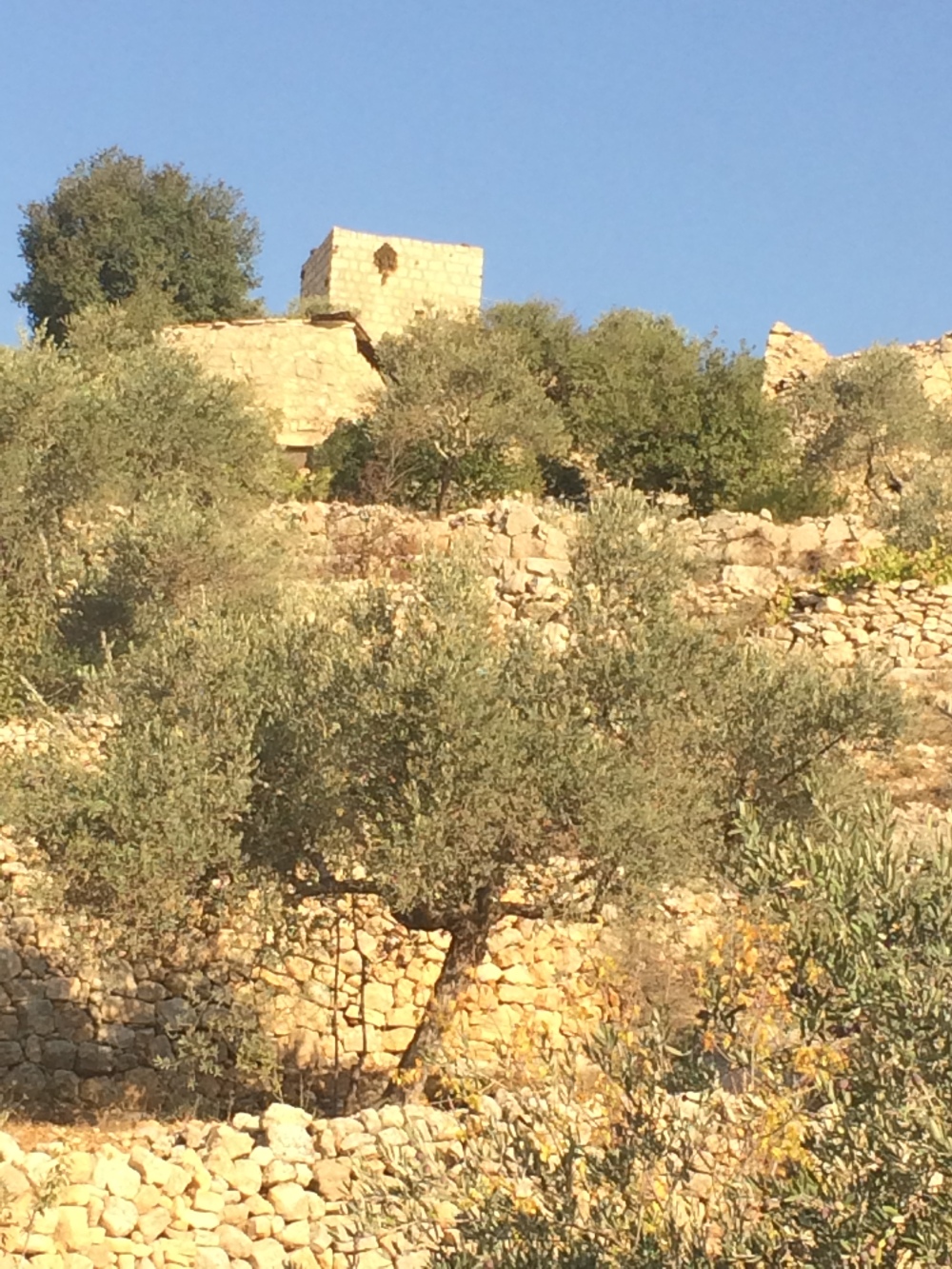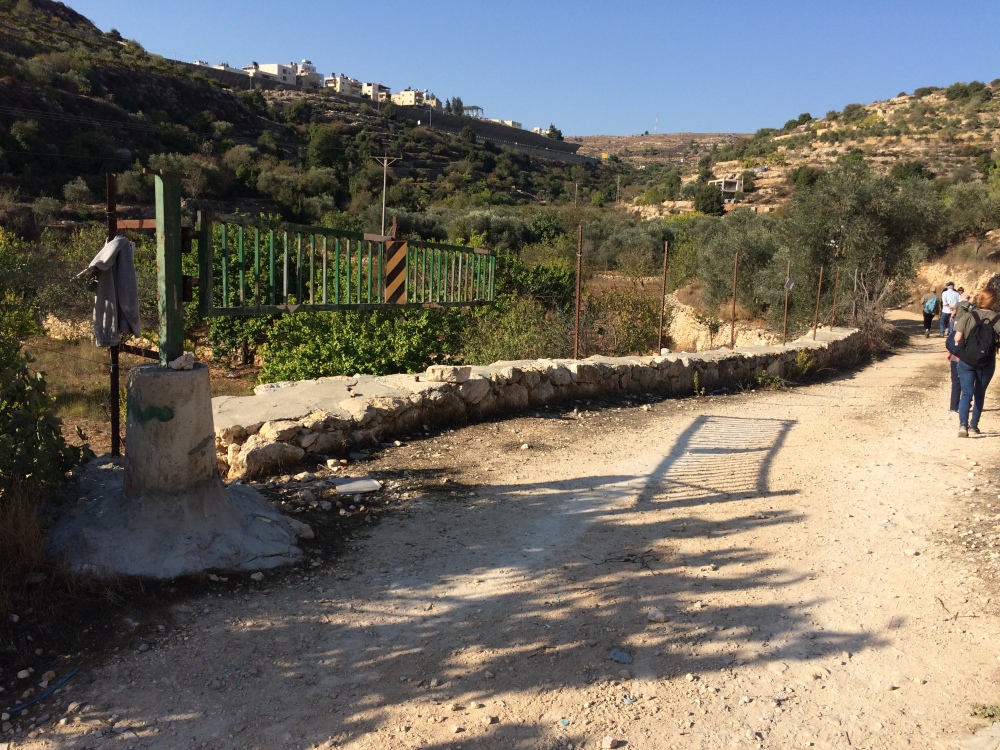Picking olives and apartheid policies are both dirty businesses. I’ll start with the olives. Our second day of picking was for a farmer on the edge of a new colony under construction. We could see and hear back hoes at work as the new buildings sat high looming down over the grove. Because of the proximity to the new colony, the farmer’s property had been fenced off and access to the olive field was restricted except for a couple of weeks in October for the harvest. How kind of the Israeli government to allow these few weeks of access to his rightfully owned property in order to grant “security” to the illegally erected colony.
It bears noting that the illegal colonies in the West Bank now house around 700,000 settlers. This is up from some 500,000 the last time I was here. Everyone with any knowledge of this situation now acknowledges that this means the idea of a two state solution is dead. It is also noteworthy that in recent years, there have been over a million settlers from Russia and USSR satellite states. While Palestinians are being systematically squeezed out of their ancestral lands, people with no connection with the land are welcomed with open arms and subsidies if they can satisfy the authorities that they have just one Jewish grandparent. That could be me.
The picking this day proved to be much more difficult than the first day. The trees were higher, the branches more scraggly and the olives smaller and less abundant. After someone had mentioned that it was probably due to the fact that the trees hadn’t been properly pruned, it hit me why. The farmer had no access to the trees for most of the year. Whatever the draconian, life crushing restriction placed on Palestinians is, the reason is always “security.” How it inconveniences and demoralizes the Palestinians effected is of no concern, or perhaps one wonders, if that wasnt the aim; in other word, making life so unbearable, as to drive them out.
Adding to the gravitas was the news that the farmer had just lost his son a week or so ago. Our group coordinators had told the mother Minot to worry about providing lunch – that they would arrange it. She insisted all the same, and provided us a beautiful lunch that we shared on the field. Once again, the heartfelt gratitude we received for our help brought many of us to tears. We left the farm covered in dust and oil stained on the surface, but deeply affected.




This is my friend Bob Schaible, past president of Maine Voices for Palestinian Rights and never one to go for the low hanging fruit.
 Our reward after a hard morning’s labor.
Our reward after a hard morning’s labor.
Kathy, thank you for all of this. I am so sad to learn that, in part because there are so many settlers, the possibility of two states is believed to be dead. The photos help us understand. What you write should be published as a series in a widely spread American newspaper.
God bless you as you labor.
Dorothy
Atlanta
LikeLike
Fyi, Kathy.
Merry Christmas!
Dorothy
450 Highbrook Drive, NE
Sandy Springs, GA 30342
404-256-3723
beasleydt@comcast.net
LikeLike
Thank you, Dorothy. And Happy Epiphany to you!
LikeLike